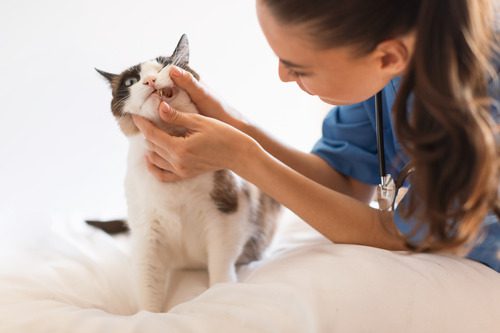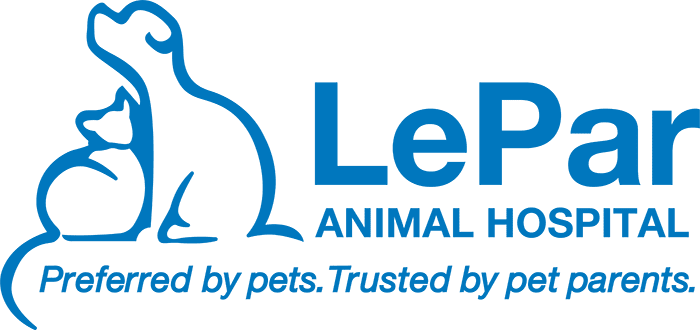Reasons Your Cat’s Teeth Are Rotting
Your cat’s teeth play a vital role in their overall health, but when they start to rot, it can lead to significant discomfort and serious complications. Many cat owners are unaware that dental disease is one of the most common health issues in felines, often progressing unnoticed until it becomes severe. From plaque buildup and periodontal disease to dietary factors and genetics, there are many reasons why a cat’s teeth may deteriorate. If your cat is showing signs of dental trouble, contact LePar Animal Hospital at (708) 423-3200 or book an appointment online today to protect your pet’s oral health.

Poor Dental Hygiene Leads to Plaque and Tartar Buildup
One of the leading causes of rotting teeth in cats is inadequate dental hygiene. Just like humans, cats require regular dental care to prevent plaque and tartar buildup. When food particles and bacteria accumulate on the surface of the teeth, plaque forms. If not removed, plaque hardens into tartar, which can only be addressed by your veterinarian.
Over time, this buildup causes inflammation of the gums, leading to gingivitis and eventually periodontal disease. Once periodontal disease sets in, bacteria can spread below the gumline, destroying the structures that support the teeth. This results in loose, decayed teeth that may eventually fall out. Regular professional cleanings and at-home dental care, such as brushing and dental treats, can significantly reduce the risk of plaque-related decay.
Periodontal Disease: The Silent Culprit
Periodontal disease is the most common dental condition in cats, and it often goes unnoticed until significant damage has occurred. This progressive disease starts with minor gum inflammation but can quickly lead to deep infections that affect the jawbone and surrounding tissues.
How Periodontal Disease Contributes to Tooth Rot
As bacteria invade beneath the gumline, they break down the ligaments and bone that hold the teeth in place. This process leads to severe decay, pain, and tooth loss. Common signs of periodontal disease include:
- Red or swollen gums
- Bad breath
- Difficulty chewing
- Drooling
- Loose or missing teeth
If your cat is showing any of these symptoms, a veterinary dental exam is crucial. Without treatment, periodontal disease can contribute to more serious health issues, including heart and kidney disease, as bacteria enter the bloodstream and affect vital organs.
Tooth Resorption: A Painful and Mysterious Condition
Tooth resorption is a painful dental condition that occurs when the body starts breaking down and absorbing the tooth structure. Unlike decay caused by bacteria, resorption happens internally, making it difficult to detect without X-rays.
Symptoms of Tooth Resorption
Cats with tooth resorption may exhibit signs of discomfort, such as:
- Avoiding dry food or favoring one side when chewing
- Pawing at the mouth
- Increased drooling
- Decreased appetite
Veterinary professionals are still researching the exact cause of tooth resorption, but it is believed to be linked to inflammation and immune system responses. Because this condition is not preventable through traditional dental care, early detection is key. Regular veterinary dental checkups can identify resorptive lesions before they cause extensive damage.
Diet and Nutrition Play a Role in Dental Health
A cat’s diet has a direct impact on their dental health. Feeding only soft or wet food can contribute to dental decay because it does not provide the natural abrasion needed to clean the teeth. While wet food is beneficial for hydration, it lacks the mechanical cleaning action that dry kibble or dental treats can provide. Some commercial cat foods are formulated specifically for dental health, featuring larger kibble sizes and special textures that help reduce plaque. Providing a balanced diet that includes vet-approved dental treats can be an excellent way to promote oral health while ensuring your cat receives proper nutrition.
Genetic Factors and Breed Predisposition
Some cats are more prone to dental disease due to genetic factors and breed predisposition. Breeds such as Siamese, Persian, and Abyssinian cats are more susceptible to periodontal disease and tooth resorption. While genetics cannot be changed, proactive dental care can help manage the risk. For cat owners with breeds prone to dental problems, early intervention is essential. Routine veterinary exams and professional cleanings can help prevent severe decay and preserve dental health for as long as possible.
Chronic Illnesses That Contribute to Dental Decay
Underlying health conditions can also contribute to the rotting of a cat’s teeth. Certain chronic illnesses, such as diabetes, feline immunodeficiency virus (FIV), and kidney disease, can weaken the immune system, making it harder for a cat to fight off infections, including those affecting the gums and teeth. Additionally, autoimmune diseases such as feline stomatitis can cause severe inflammation of the mouth, leading to widespread dental decay. In some cases, affected cats may require extensive dental work, including tooth extractions, to relieve pain and prevent further infection.
The Importance of Veterinary Dental Care
Regular veterinary dental exams are essential for identifying dental disease early and preventing further damage. Many dental issues in cats are hidden beneath the gumline, making professional evaluations crucial. At LePar Animal Hospital, we offer comprehensive dental exams, cleanings, and treatment options for dental disease. If you suspect your cat’s teeth are rotting, don’t wait for the problem to worsen. Call us at (708) 423-3200 or book an appointment online today to ensure your cat gets the care they need.
Recent Posts
About Us
LePar Animal Hospital has served generations of pets and families in Evergreen Park, Oak Lawn, Palos, and neighboring suburbs, and we hope to serve generations more! Our animal hospital is accredited by the American Animal Hospital Association (AAHA) and staffed with Fear Free Certified veterinarians providing a multitude of services, from wellness and dental care to acupuncture, chemotherapy, and surgery.
